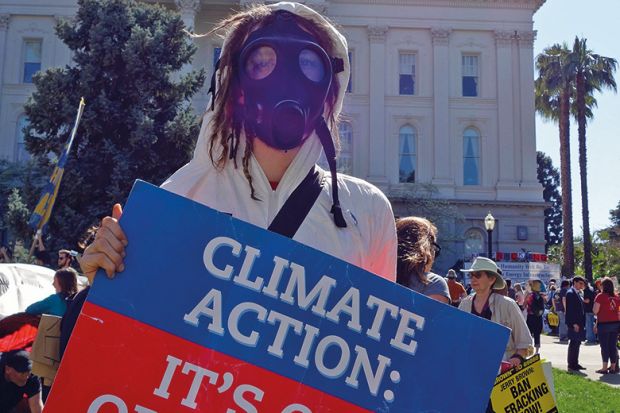Benjamin Barber, who sadly died just after this book was published, was an engaged political theorist concerned with ways of making democracy thrive in modern nation states. In recent years, he had come to focus on two issues in particular. The first was the capacity for cities to become centres for democratic renewal. Cities, he proposed, are small enough for citizens to be able to engage directly with their governance; they are also associated with innovation – technical and cultural – so that city dwellers can readily envisage alternative and progressive futures. His second concern was about climate change, and the lack of progress that national governments have so far delivered in combating it.
In this book, Barber unites these two themes, proposing that cities across the globe are our best hope for leadership and action on climate change. Recent events have done something to justify his hopes. In response to Donald Trump’s decision to pull the US out of the Paris climate accord, the “Climate Mayors” – representing a group of more than 350 US cities that includes Chicago, Los Angeles and New York – have pledged to continue to honour the terms of the agreement.
The first half of the book sets out the general case for Barber’s claim. The chapters are short and not very systematically argued but, in essence, he wants to assert that cities have the ethical and legal right to take action on climate. Urban populations have been let down by national governments, which for several decades have failed to agree adequate measures to counter the build-up of greenhouse gases in the atmosphere. City governments have a duty to protect their citizens’ well-being, and thus can legitimately undertake their own actions against climate-changing emissions even if those actions are at odds with national governments’ priorities.
Furthermore, Barber highlights evidence suggesting that cities across the world are beginning to act. He points to the devolving of powers to mayors and city regions even in such centralised countries as the UK. He draws attention to the scope for mayors to act collaboratively to press for climate action, through novel bodies such as the Global Parliament of Mayors (which Barber played a big role in founding). And he emphasises the possible scale of cities’ actions. Urban dwellers now make up more than half the world’s population; they are also by a long way the richer half. Getting cities to act on climate change could thus have a global impact.
The second part of Barber’s book concentrates on examples of the things cities are doing. There are uplifting stories here about decarbonising entire transport systems or bringing buried and neglected urban rivers back to flourishing life. But the “fifteen policy options” for cities that he offers in Chapter 13, for example, are far more prosaic and familiar. There are no detailed assessments guaranteeing that cities can do enough to meet UN climate targets. And, given that so many of the world’s biggest cities are in the BRIC countries (Brazil, Russia, India and China), where the powers of mayors and citizens are not really similar to those in New York or Paris, there is room for anxiety about what such cities can deliver.
Barber has left us with a provocative book, but it better conveys his enthusiasm for city-level action than a detailed evaluation of urban-led initiatives to fix climate policy.
Steven Yearley is professor of the sociology of scientific knowledge and director of the Institute for Advanced Studies in the Humanities at the University of Edinburgh.
Cool Cities: Urban Sovereignty and the Fix for Global Warming
By Benjamin R. Barber
Yale University Press, 224pp, £16.99
ISBN 9780300224207
Published 20 June 2017
Register to continue
Why register?
- Registration is free and only takes a moment
- Once registered, you can read 3 articles a month
- Sign up for our newsletter
Subscribe
Or subscribe for unlimited access to:
- Unlimited access to news, views, insights & reviews
- Digital editions
- Digital access to THE’s university and college rankings analysis
Already registered or a current subscriber?




